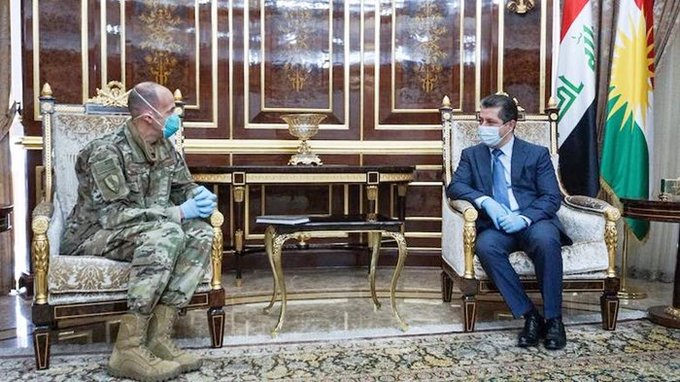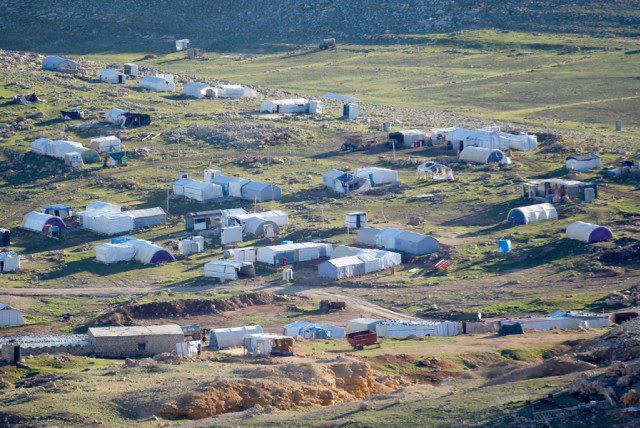The coronavirus continues to spread through factories, warehouses and other workplaces as the number of COVID-19 cases rises sharply in US states that have reopened businesses and abandoned social distancing guidelines.
Twenty-nine states and US territories logged an increase in their seven-day average of new reported cases on Monday, with nine states—California, Texas, Arizona, Nevada, Oklahoma, Utah, Florida, South Carolina and Georgia—reporting record average highs. Disturbingly, many of the new cases are among younger people, with the median age for newly diagnosed coronavirus cases in Florida falling to 37.
As the World Socialist Web Site reported yesterday, Florida’s agricultural regions—where migrant workers pick fruit and vegetables next to each other and are crammed into crowded busses, trailers and apartments—have been major vectors for the spread of the deadly disease.
Immokalee, Florida, the country’s winter tomato capital, has 1,207 reported cases. With the harvest season over, thousands of migrant workers are now making their way up the East Coast and to the Midwest, with many of them taking the virus to Georgia, North Carolina, Michigan and other states.
The meatpacking industry continues to be the largest spreader of COVID-19. It is esimated that more than 24,000 workers have been infected and at least 91, including more than 25 at facilities owned by Tyson Foods, have died. Both figures have increased five-fold since Trump used the Defense Production Act to reopen infected slaughterhouses and meat processing plants in late April.
In North Carolina, where cases were found in at least 23 meat processing plants, the Raleigh News & Observer noted the comments of State Representative Jimmy Dixon, a staunch ally of the hog industry. During a recent committee meeting he said a policy of “herd immunity” would be better for the economy. “We’d better start addressing the economic health of this state," he said. "In my opinion, we’re all going to get [COVID-19], and the sooner we get it the better off we are.”
| 06/23/2020 | 7-Select | Yogurt Pretzels | Food & Beverages, Allergens, Snack Food Item | Undeclared Peanuts | Mount Franklin Foods |
| 06/23/2020 | Little Salad Bar | Garden Salad | Food & Beverages, Vegetable Products, Foodborne Illness | Possible Cyclospora Contamination | ALDI |
| 06/23/2020 | Golden Nutrition Inc. | Anti-Viral Immune Enhancement Capsules | Food & Beverages, | Unsubstantiated Health Claims on Label | Golden Nutrition Inc. |
| 06/22/2020 | Flagstone Foods LLC | North Star Sweet & Salty Caramel Trail Mix | Food & Beverages, | Undeclared Cashews | Flagstone Foods LLC |
| 06/22/2020 | Hy-Vee Inc. | Garden Salad, Bagged | Food & Beverages, | Potential Cyclospora Contamination | Hy-Vee Inc. |
| 06/22/2020 | Gordon Choice | Imitation Crab Supreme Style | Food & Beverages, Allergens | May contain undeclared egg white | Trident Seafoods |
| 06/19/2020 | Fresh Express | Southwest Chopped Kit | Food & Beverages, Allergens | Undeclared wheat, soy, cashews and coconut | Fresh Express |
| 06/19/2020 | Hill Country Fare | Pink Lemonade, Citrus Punch, Fruit Drink and Grape Drink | Food & Beverages, | Undeclared Milk | H-E-B |
| 06/18/2020 | Robitussin | Cough and cold products | Drugs, Over-the-Counter Drugs | Incorrect dosing cups | GSK Consumer Healthcare |
| 06/12/2020 | Captain Rusty’s | Undeclared fish, shellfish, wheat, eggs, soy, and milk | Food & Beverages, Allergens, Seafood/Seafood Product | Undeclared fish, shellfish, wheat, eggs, soy, and milk | Rusty’s Seafood Market |
On Monday, the Iraqi Ministry of Health and Environment announced that 67 deaths and 1,808 new coronavirus infections had been recorded in the country over the past 24 hours.
The ministry in a statement noted that 10,075 laboratory tests had been carried out over the last day, increasing the total number of medical tests conducted, since the disease first emerged in Iraq, to 455,316.
According to the ministry’s latest figures, there has been a total of 32,676 confirmed cases of COVID-19 in Iraq, including 1,167 deaths, 14,785 recoveries, with 16,724 cases still active, in which individuals are receiving medical care, with 222 of them in intensive care.
The Health Ministry of the Kurdistan Regional Government (KRG) also announced on Monday that there has been eight deaths over the past 24 hours in the Kurdistan Region, along with 299 new cases.
The situation of Iraqi women was already precarious before the pandemic. Years of socio-economic and political instability have led to a deterioration in the rights, well-being and representation of women in Iraq. The results of the gender analysis confirm these worrying trends: women and girls are more at risk and withstand more pressure during this pandemic.
Several high profile cases of gender-based violence in Iraq and the Kurdistan Region made headlines during the last several months, in line with news of a rise in domestic violence during coronavirus lockdowns around the globe.
According to the United Nations, 46 percent of married women in Iraq have survived some form of abuse at home, of which a third report physical and sexual assault.
A participant in Oxfam’s survey attributes the increase in domestic violence to men not being able to go work or socialize, leading to a spiral of economic hardship and frustration.
"Men have little patience. […] Before, when men got angry they could go out and after a while forget about the issue, but now they can't go out and [they] have to stay together, and that creates more tension,” one male respondent, aged 36, told Oxfam researchers.
Iraq does not have any specific laws to protect against gender-based violence, which disproportionately affects women.
Several UN agencies in April called on the Iraqi Parliament to rapidly adopt an Anti-Domestic Violence Law amid the reported rise in domestic violence during the COVID-19 lockdown.
Iraq's third-largest city, Basra, was once called “Venice of the East” due to the numerous water canals and bridges meandering throughout the entire city. This description is no longer true, as the Shatt al-Arab ("Stream of the Arabs") and its branches have become polluted with algae, bacteria, chemical toxins, and waste products from humans, hospitals and factory residuals.
On June 1, Iraq’s Ministry of Water Resources announced that it has prepared a comprehensive plan to tackle the problem of salinity and environmental pollution in Basra province. The plan covers several measures, including building a dam in northern Basra to prevent river water from becoming further salinated.
Shatt al-Arab is a confluence of the Tigris and Euphrates rivers. But nowadays, what is flowing into Shatt al-Arab comes mostly from the Tigris River. This is because both rivers are witnessing decreasing rainfall, high temperatures over the past couple of years and the construction of dams along the two river streams. In turn, this has lowered Shatt al-Arab's share of water and polluted it with multiple contaminates.
Despite Basrawis living in a hydrocarbon-rich province, residents since 2011 have come together on the streets and in front of government buildings to demand rights such as clean water, health care, electricity, jobs, an end to corruption, and an end to foreign interference from the United States and Iran. Clean water was and still is their major demand, but no tangible measures have been taken.
In September 2018, Basrawis took to the streets to protest the government when more than 118,000 people in Basra suffered poisoning due to contaminated water. Health authorities and the High Commission for Human Rights announced that those admitted to hospitals in 2018 were experiencing severe diarrhea, vomiting, nausea and high fever.
Senior army commanders pressured a junior officer to stop an internal investigation into a British war crime in Iraq, writing it off as an “unfortunate incident in war”, a former member of the Royal Military Police’s Special Investigations Branch (SIB) has told Declassified UK.
Another former senior SIB officer has said that British paratroopers should have been convicted of killing another Iraqi but they escaped punishment when a trial collapsed after failings in an SIB investigation.
Declassified UK has spoken to four former soldiers in the SIB, which deployed to the Iraq conflict in 2003 alongside conventional troops, ready to investigate serious incidents involving UK forces, including potential British war crimes. None wanted to be named.
Decisions were made not to send sufficiently qualified senior investigating officers to command the SIB during the invasion and early tours, the former SIB members said. This made it easier for the army’s senior command to influence the investigations into abuses and created a backlog of unresolved cases, they say.
“I did not feel qualified to deal with an investigation of this scale and did not have sufficient resources,” one of the unit’s leaders later said. The SIB should have sent their “A-team” to Iraq, but instead dispatched officers who were “completely unqualified” to lead serious investigations in a theatre of war, a former senior SIB officer told Declassified UK.
“They sent the wrong people… And to this day I don’t know why,” the source said. “The more I think about it, the more mad it becomes.”
The former senior SIB officer said that one would “absolutely 100%” expect to see more UK military prosecutions coming out of Iraq. He added, “You look at the amount of people who were prosecuted – virtually none. You know, how many people got away with murder?”

